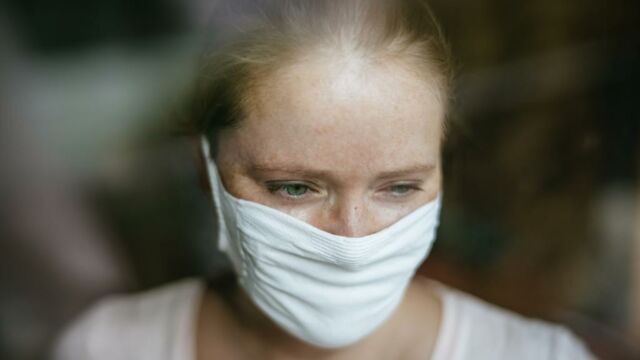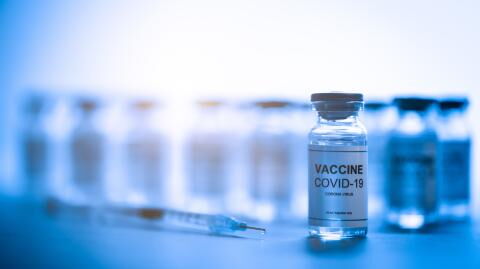Karlee Camme was supposed to go see her grandparents for the first time in over a year. They were all vaccinated and ready to go, but two days before the visit, she lost her sense of smell and taste. Camme, 24, had received the Johnson & Johnson vaccine a month earlier. But it turned out she had a mild case of COVID-19. Looking back, she realised that the runny nose and severe fatigue she had experienced earlier in the week may have been early symptoms.
Discover our latest podcast
A few days later, her loss of the sense of taste and smell proved to her that it was not just a cold. She thought it prudent to do a COVID test. Vaccines against COVID-19 have been shown to be extremely effective in preventing serious illnesses that can lead to hospitalisation and death. But 'no existing vaccine is 100 per cent effective in preventing infection,' says Dr Lisa V. Adams, head of global health at Dartmouth College in Hanover, New Hampshire.
We know that there are and will be some infections in vaccinated people. At least until there is very little virus in circulation. The good news is that the symptoms of their illness should be very mild.
Vaccines are supposed to prevent hospitalizations and deaths
Of the more than 95 million fully vaccinated Americans, less than 0.01% have contracted serious infections, according to the Centres for Diseases Control and Prevention (CDC) report in late April. This includes at least 594 hospitalizations and 112 deaths related to COVID-19.
About 45% of the infections occurred in people aged 60 and over. This includes cases in nursing homes, where residents and staff were among the first Americans to be vaccinated. Elderly people with pre-existing conditions may be prone to more severe disease, and transmission is more common in common areas.
Paul Offit, director of the Vaccine Education Center at the Children's Hospital of Philadelphia, said that aside from a few exceptional infections, the vaccines have achieved their goal of protecting most people from severe forms of the disease.
The purpose of these vaccines is to keep you out of the hospital, to keep you out of the ICU and to keep you from dying. If you have a mild infection or test positive on a PCR test, that's fine.
Cases of COVID-19 that occur after a vaccine injection may cause symptoms, but these are usually mild
Some infections are so mild that patients might as well be asymptomatic. Karlee Camme, for example, was not sick enough to think she had COVID-19.
Masha Gessen, 54, a writer for The New Yorker, also became ill while being vaccinated. She wrote in the magazine that her illness was fairly mild, with symptoms including a runny nose, itchy eyes, fatigue and loss of smell. She recovered in about a week, which seems to be the case for most people with mild infections.
An article in the New England Journal of Medicine describes two similar cases, all of which were cured within a week or less of testing positive. The first was a 51-year-old woman who had a sore throat, blocked nose, headache and loss of smell, and another 65-year-old woman who was also tired and had migraines.
Karlee Camme's worst symptom started a week after her positive test. She noticed that she felt breathless when walking from her car to work, and had to stop to catch her breath. She also felt nauseous and had migraines, chills and night sweats for almost a month after her test.
Post-vaccination infections could be less contagious
Although Karlee Camme is still experiencing some symptoms, she has not passed the virus on to her family.
My partner hasn't even been vaccinated and he hasn't contracted the virus. We slept in the same bed until I tested positive. That's the thing: you can still get it, but the likelihood of you giving it to others is a little bit lower.
Patients who contract the virus despite full vaccination usually have a much lower viral load, which means they could be less contagious, according to Israeli studies. The papers have not yet been peer-reviewed, but the results are promising.
Other Israeli studies have also shown that the Pfizer vaccine may be 94% effective in preventing asymptomatic infections, reducing the risk of a person unknowingly transmitting the virus.
High vaccination coverage is the key to stopping infections
To virtually eliminate the risk of contracting COVID-19, more people need to be vaccinated, according to Paul Offit. He estimates that 80 per cent of the population needs to be immunised either through vaccines or by developing herd immunity for the US to be out of the woods.
This virus is going to be with us for a while. But the goal is to control its spread, which I think we are doing gradually.
Even after her infection, Karlee Camme remains positive and keeps her faith in the vaccine.
I'm a vaccine advocate. The only way out is for everyone, or the majority of the population, to get vaccinated. I think that's the only step forward we can take to get back to a more normal world.















